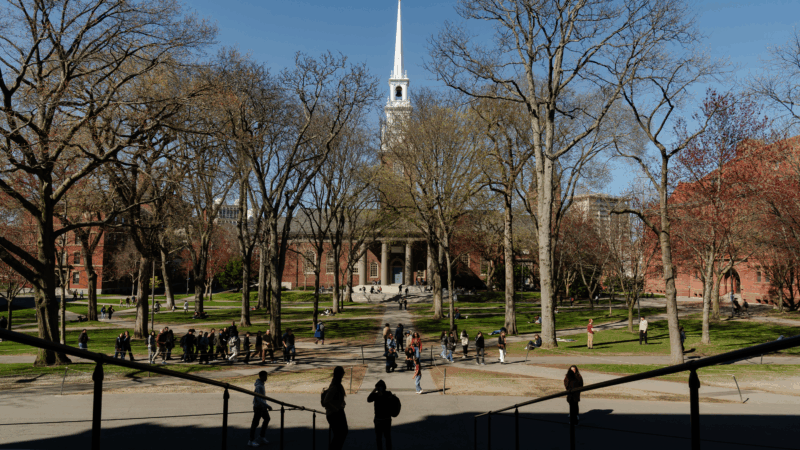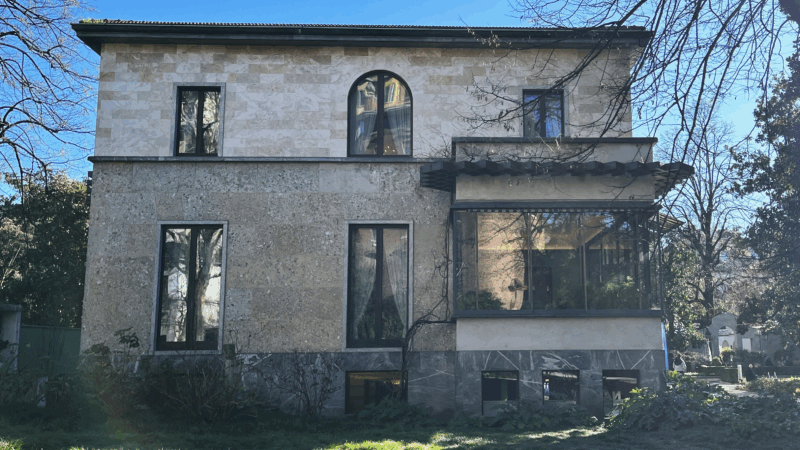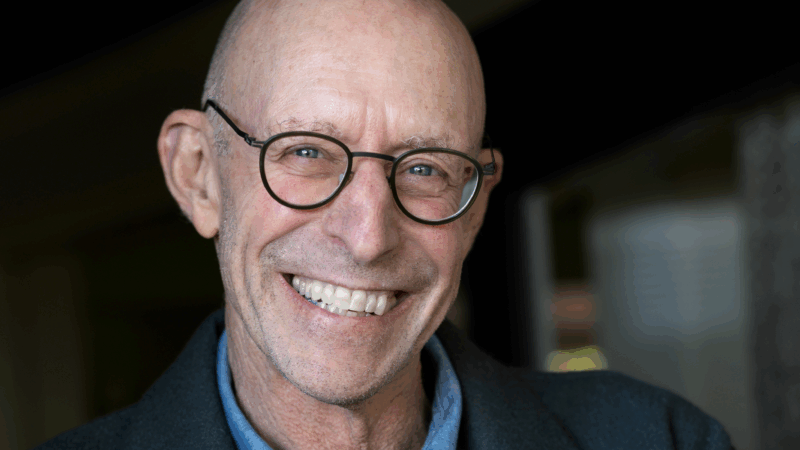Inside Harvard’s lawsuit against the Trump administration
In an escalation of the back-and-forth between Harvard University and the Trump administration, the school has filed a lawsuit against the federal government. In it, Harvard argues the government’s actions, including freezing more than $2.2 billion in federal funding, violate the First Amendment and don’t follow legal procedures.
“The consequences of the government’s overreach will be severe and long-lasting,” reads a letter by Alan M. Garber, Harvard’s president, announcing the lawsuit. He goes on to detail the type of research the government has “put in jeopardy,” including efforts studying child cancer survivors, predicting the spread of infectious disease outbreaks and easing the pain of wounded soldiers.
“Defendants’ actions threaten Harvard’s academic independence and place at risk critical lifesaving and pathbreaking research that occurs on its campus,” the lawsuit reads.
The Trump administration accuses Harvard of failing to protect Jewish students. After Harvard refused to comply with a list of demands from the administration, the Joint Task Force to Combat Anti-Semitism announced it was freezing funds.
“The gravy train of federal assistance to institutions like Harvard, which enrich their grossly overpaid bureaucrats with tax dollars from struggling American families is coming to an end,” Harrison Fields, a White House spokesperson, said in a statement. “Taxpayer funds are a privilege, and Harvard fails to meet the basic conditions required to access that privilege.”
But Harvard’s lawsuit questions how freezing research funds will further the administration’s goal of eliminating antisemitism on campus.
On Tuesday, nearly 200 higher education leaders released a joint statement speaking out “against the unprecedented government overreach and political interference now endangering American higher education.” The letter was organized by the American Association of Colleges and Universities and signed by presidents and administrators at colleges across the U.S., including at large public research universities and small private colleges.
The impact of the federal funding freeze at Harvard
Dr. Donald Ingber leads scientific and engineering teams at a Harvard University lab, building small devices that replicate the functions and responses of living organs. He told NPR’s Ailsa Chang his team uses those devices to “study how the human lung, intestine, bone marrow and lymph node respond to radiation,” and also “to identify drugs that can mitigate the effects of radiation.”
But last week, Ingber’s lab at Harvard, the Wyss Institute, received a stop work order on three federal contracts it was working on, worth more than $20 million.
“The experiments have to stop,” Ingber said. “We basically have to bring it to a halt unless we can find other funding. We’re in the damage assessment phase.”
Ingber’s research could be helpful for people undergoing cancer treatments and even astronauts who encounter radiation during space travel.
“You’re never going to get to Mars … unless you figure out how to protect astronauts against radiation toxicity,” Ingber said. “But it also would be there to protect against nuclear reactor disasters… We’re at a time where the government wants to build nuclear plants all over the country.”
His focus now is on salvaging research and data that, in some cases, took months to collect. He’s also looking for alternative funding so he doesn’t have to fire his staff, “all young people who are passionate, working day and night,” he said.
The order to stop work in Ingber’s lab came on the same day the Trump administration froze more than $2.2 billion multi-year grants and contracts after the university rejected demands that it change hiring, admissions and other policies in response to allegations of antisemitism.
“I honestly don’t understand why they targeted us,” said Ingber, “because this work is totally unrelated to anything that you can imagine related to wokeness or antisemitism.”
The Wyss Institute is part of Harvard, but it’s also a separate nonprofit organization, with all of its direct costs and indirect costs going 100% to research and technology development, according to Ingber.
What is Harvard’s argument?
That confusion over the connection between antisemitism and the research being shut down is one element in the university’s legal case against the federal government.
“The Government has not—and cannot—identify any rational connection between antisemitism concerns and the medical, scientific, technological, and other research it has frozen that aims to save American lives, foster American success, preserve American security, and maintain America’s position as a global leader in innovation,” Harvard’s complaint says.
The lawsuit was filed in U.S. District Court in Massachusetts and aims to block the Trump administration from withholding federal funding “as leverage to gain control of academic decisionmaking at Harvard.”
The suit also makes the argument that the government is violating the First Amendment, which they argue, “does not permit the Government to ‘interfere with private actors’ speech to advance its own vision of ideological balance.’ “
In addition, the suit claims the government did not follow procedures, established by Congress, for “revoking federal funding based on discrimination concerns.”
Since the funding freeze early last week, President Trump has also threatened to revoke the university’s tax-exempt status, a move that would be rare, though not unprecedented.
American Jordan Stolz speedskates to a third Olympic medal — silver this time
U.S. speedskater Jordan Stolz had a lot of hype accompanying him in these Winter Olympic Games. He's now got two gold medals, one silver, with one event to go.
Bad Bunny and J. Cole rule the pop charts
These days, the Super Bowl halftime show is a massive driver of the streaming, airplay and sales that fuel the Billboard charts. This week, Bad Bunny benefits from that influence.
Reporter’s notebook: My Olympic Lunar New Year
An NPR reporter covering the Olympics in Milan takes us on cultural side quests, to a hospitality house and a candy store.
Michael Pollan says AI may ‘think’ — but it will never be conscious
"Consciousness is under siege," says author Michael Pollan. His new book, A World Appears, explores consciousness on both a personal and technological level.
The U.S. and Canada set to square off in Olympic women’s ice hockey gold medal match
Canada was long the top dog of Olympic women's hockey. But with a win Thursday, the Americans could do more than earn a third gold medal — they could prove the sport's balance of power has shifted.
Amazon dethrones Walmart as the world’s biggest company by sales
In a slow-motion race of two retail behemoths, Amazon's trump card was its lucrative cloud-computing business.






